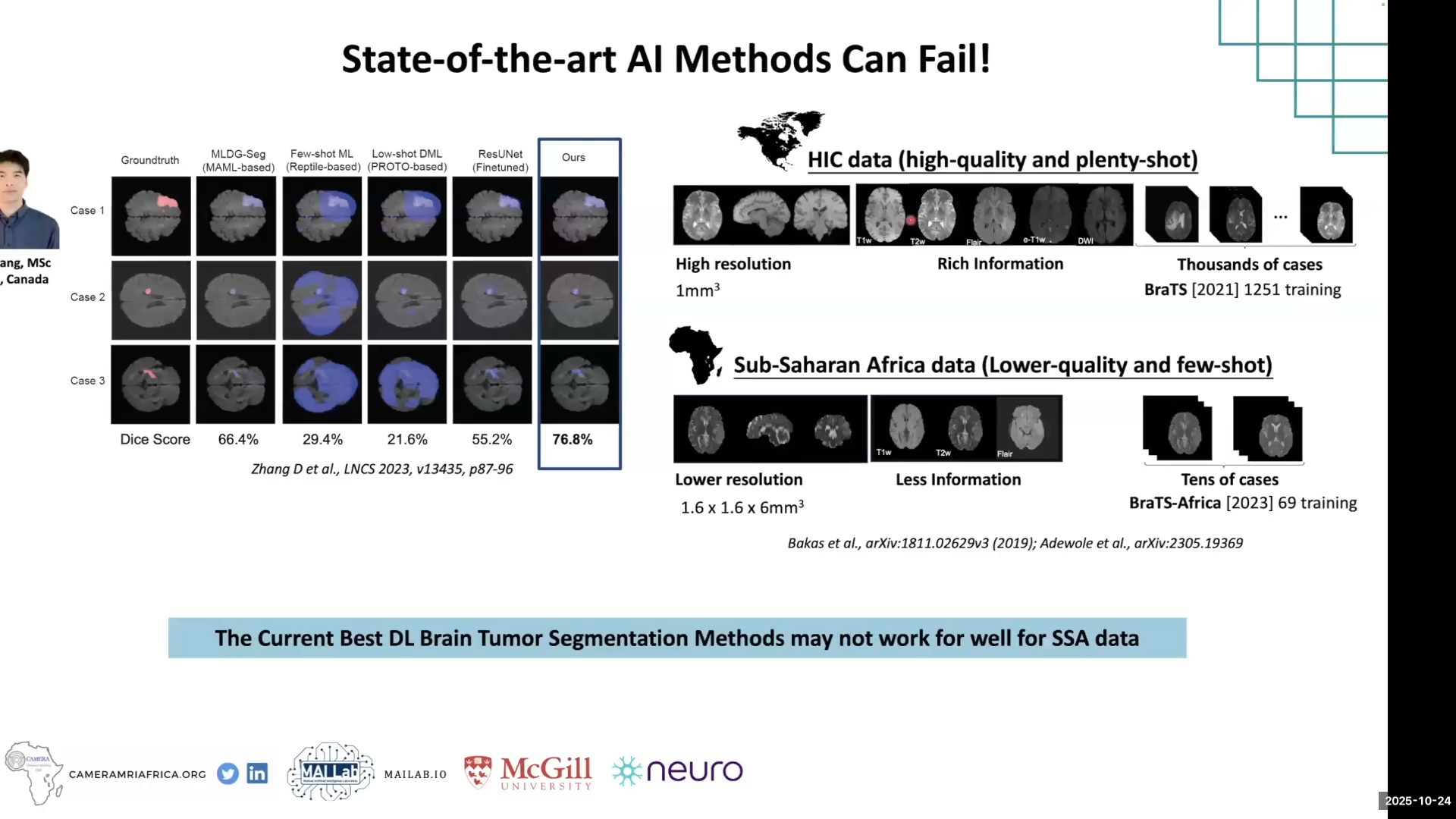Bridging the AI in Medical Imaging Divide in Africa: Insights from Dr. Udunna Anazodo
We were honoured to host Dr. Udunna Anazodo, Assistant Professor at McGill University, for a vital discussion on the challenges and innovative solutions for implementing AI in medical imaging across Africa.

We were honoured to host Dr. Udunna Anazodo, Assistant Professor at McGill University, for a vital discussion on the challenges and innovative solutions for implementing AI in medical imaging across Africa.
The seminar, co-hosted by the [African Institute of Data Science and Artificial Intelligence (AfriDSAI)](https://www.up.ac.za/afridsai] and SisonkeBiotik, outlined a clear pathway to ensure that AI serves as an equitable tool, rather than a widening divide, in African healthcare systems.
The Structural Barriers to AI Adoption
AI holds incredible promise for transforming diagnostic imaging, particularly in resource-constrained settings where specialists may be scarce. However, Dr. Anazodo highlighted that this promise is limited by significant, often unaddressed, structural challenges:
- Infrastructure Scarcity: A fundamental lack of data centre infrastructure and reliable High-Performance Computing (HPC) across many regions limits both training and deployment of complex AI models.
- Model Generalizability: Most medical AI models are developed and validated on Western populations. When these are applied to diverse African populations, issues with generalizability arise, leading to potential inaccuracies and serious clinical risk.
Dr. Anazodo stressed that for AI to be effective, it must be validated on, and ideally built by, Africans to ensure clinical relevance and trust.
Innovative Solutions: Building African AI Capacity
The core of the solution lies in local capacity building and developing tailored infrastructure. Dr. Anazodo showcased several groundbreaking initiatives driven by her team:
1. SPARK Academy: Training the Trainers
The Sprint to AI Training for African Medical Imaging Knowledge Translation (SPARK) Academy is a rigorous “train-the-trainer” program that has already educated almost 700 individuals over the past three years. This academy focuses on a ‘teach-try-use’ methodology, using practical clinical use cases like brain tumour segmentation to build a network of deep learning experts who can, in turn, train others.
2. Infrastructure Optimization for CPUs
To circumvent the scarcity of GPU infrastructure, the team is developing lightweight, CPU-optimized tutorials for complex models like the 3D U-Net. This ensures that AI training and experimentation can be conducted effectively even on standard computer hardware, lowering the barrier to entry for researchers and clinicians.
3. Bench-to-Bedside Development at MAI Lab
The Medical Artificial Intelligence (MAI) Lab in Lagos, Nigeria, serves as a crucial hub. It is Africa’s first AI lab situated within a private radiology practice, allowing for essential bench-to-bedside work where models are developed, validated, and implemented directly in a clinical setting.
4. Expanding Data Access and HPC
Looking ahead, Dr. Anazodo announced plans to launch the Neuron infrastructure to provide researchers with access to the necessary High-Performance Computing (HPC) and mentorship to pilot and scale their AI models, alongside continued efforts to create publicly available datasets, such as the ongoing breast ultrasound dataset effort.
Watch the Full Seminar
This discussion is essential viewing for anyone passionate about AI, global health, and equitable technology development.
You can watch the full recording of the seminar here: https://www.youtube.com/watch?v=hXSLZ_eF_YQ
Speaker: Dr. Udunna Anazodo, Assistant Professor, Department of Neurology and Neurosurgery, McGill University; Founder and Chair of CAMERA; Scientific Director of MAI Lab.
Date: 24 October 2025
Hosted by: The Data Science for Social Impact Research Group and African Institute of Data Science and Artificial Intelligence (AfriDSAI) at the University of Pretoria, in collaboration with SisonkeBiotik.